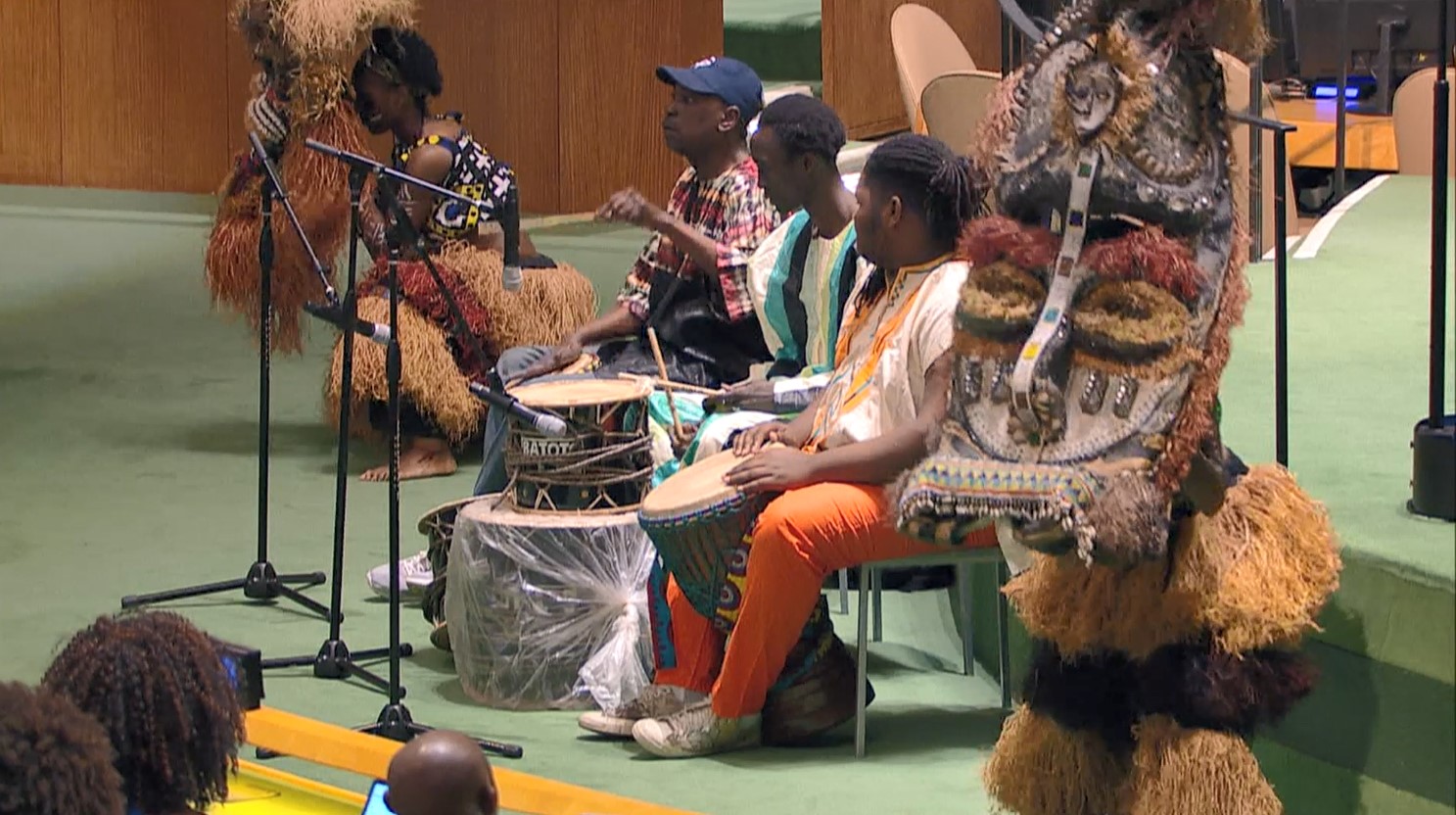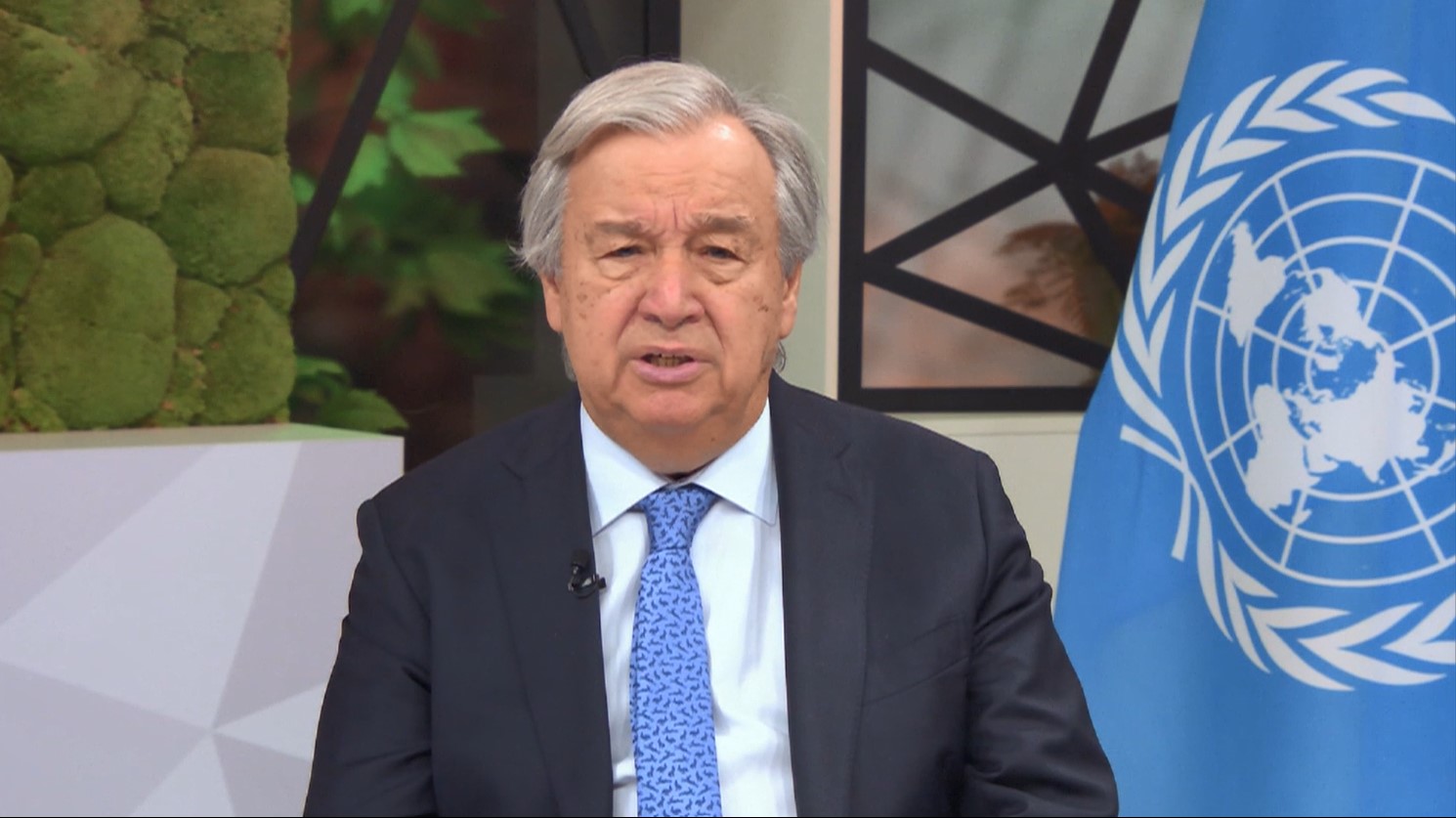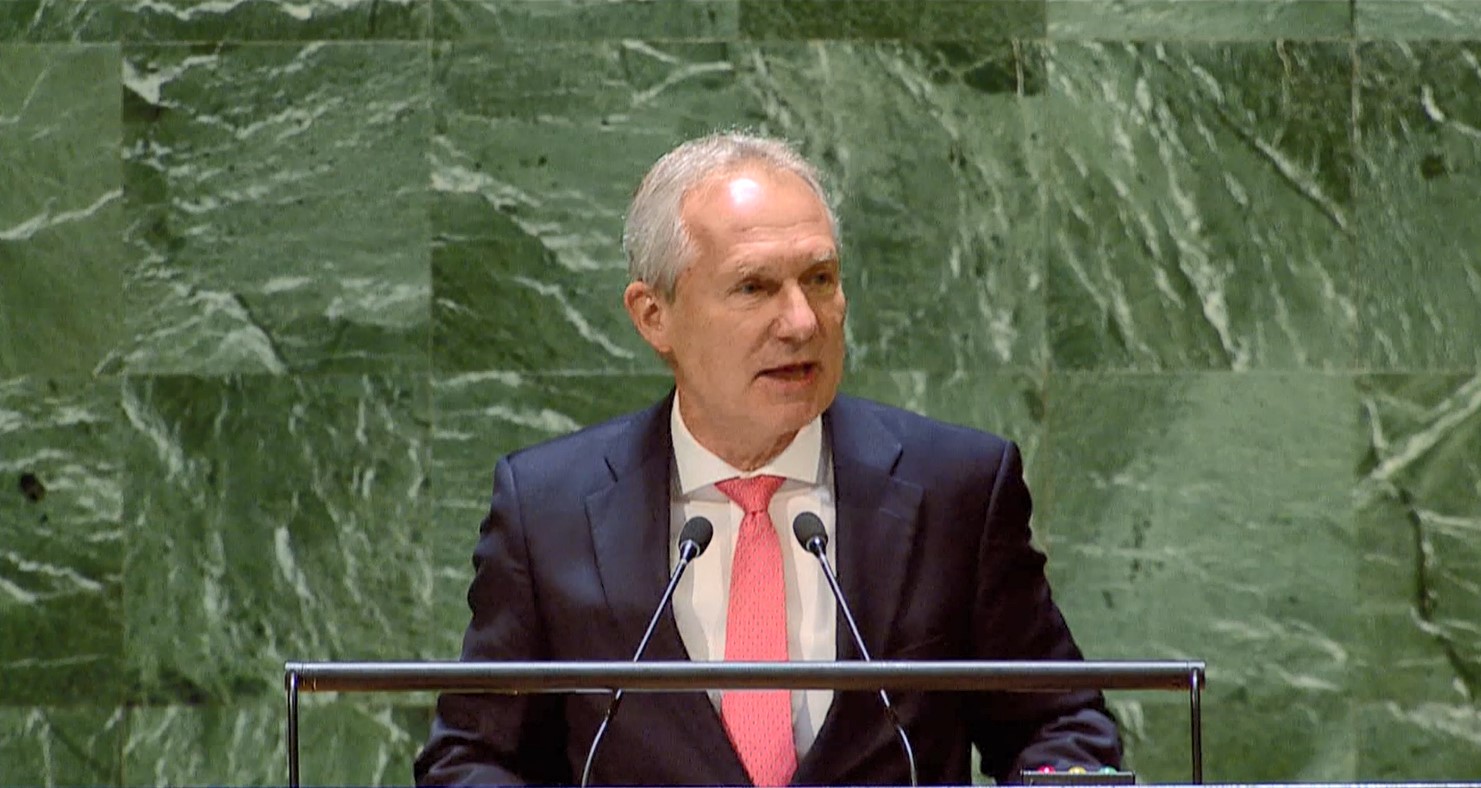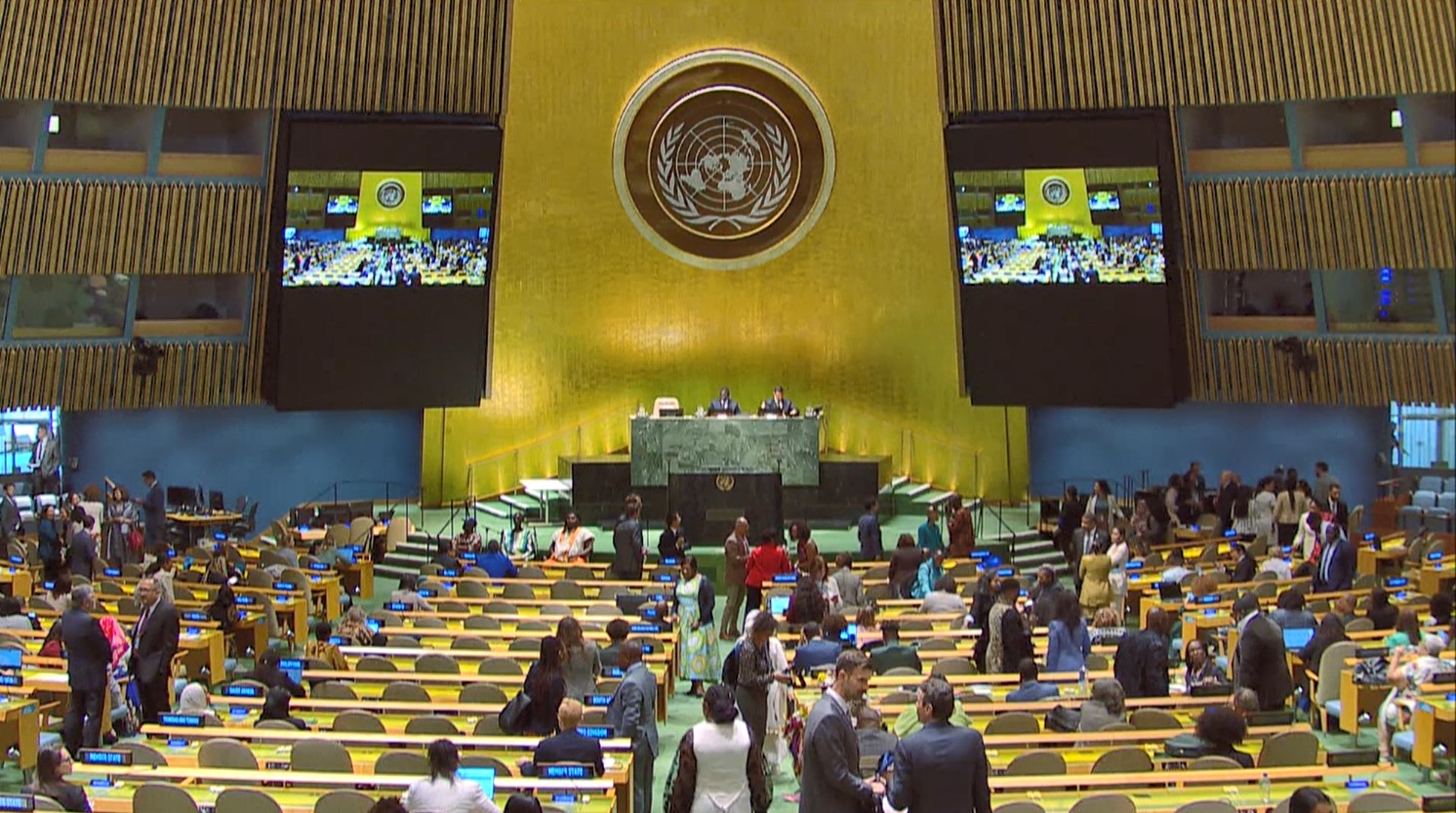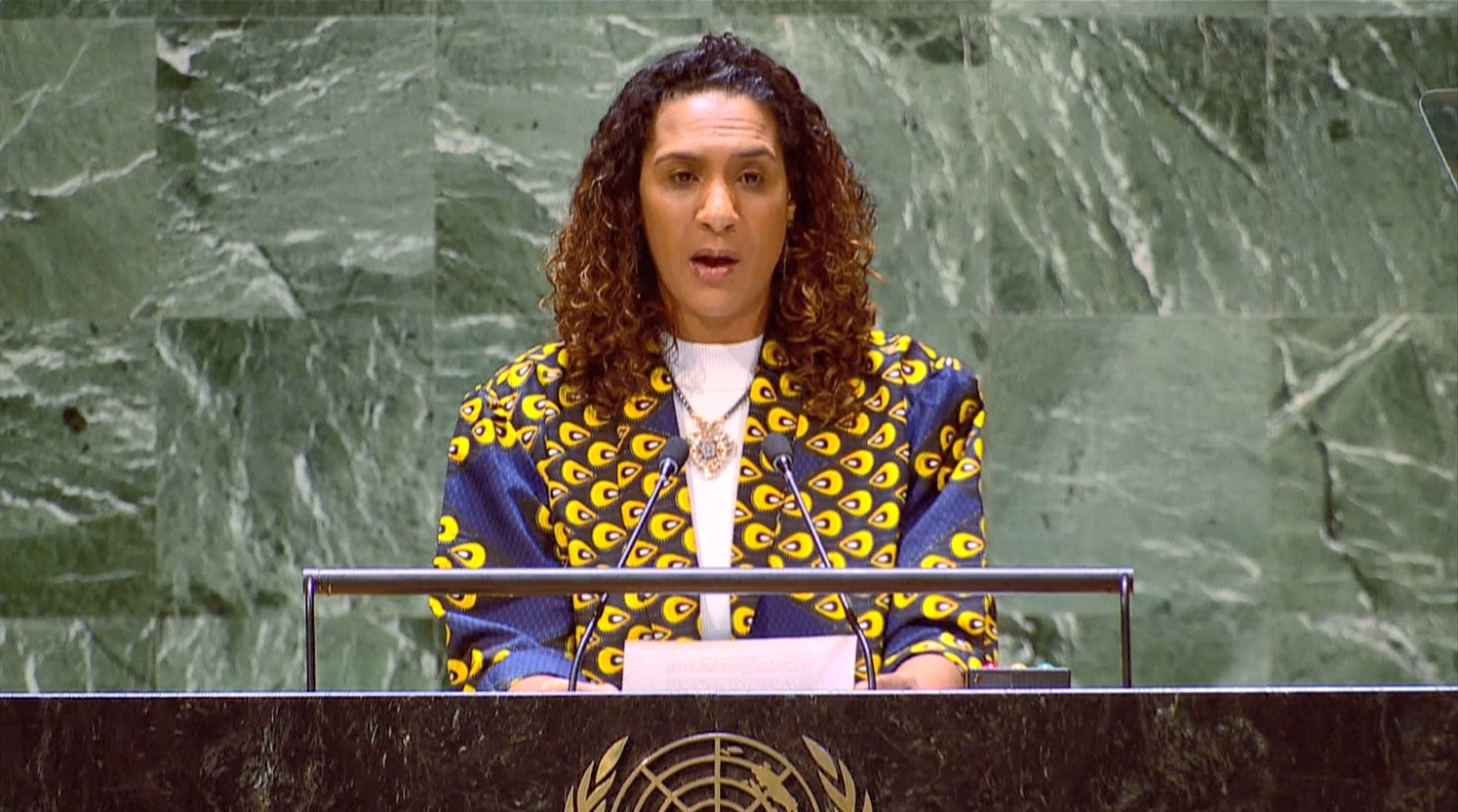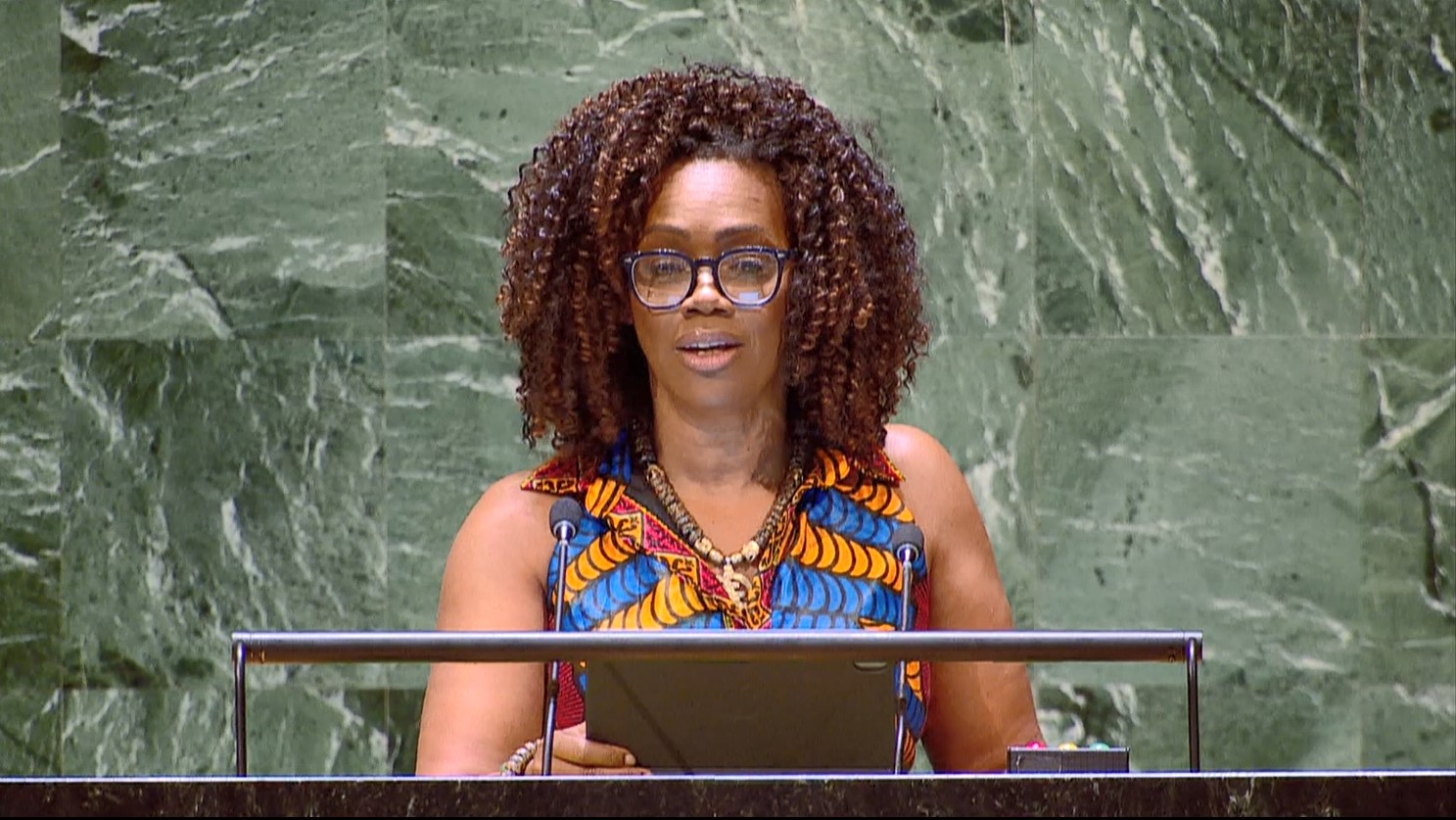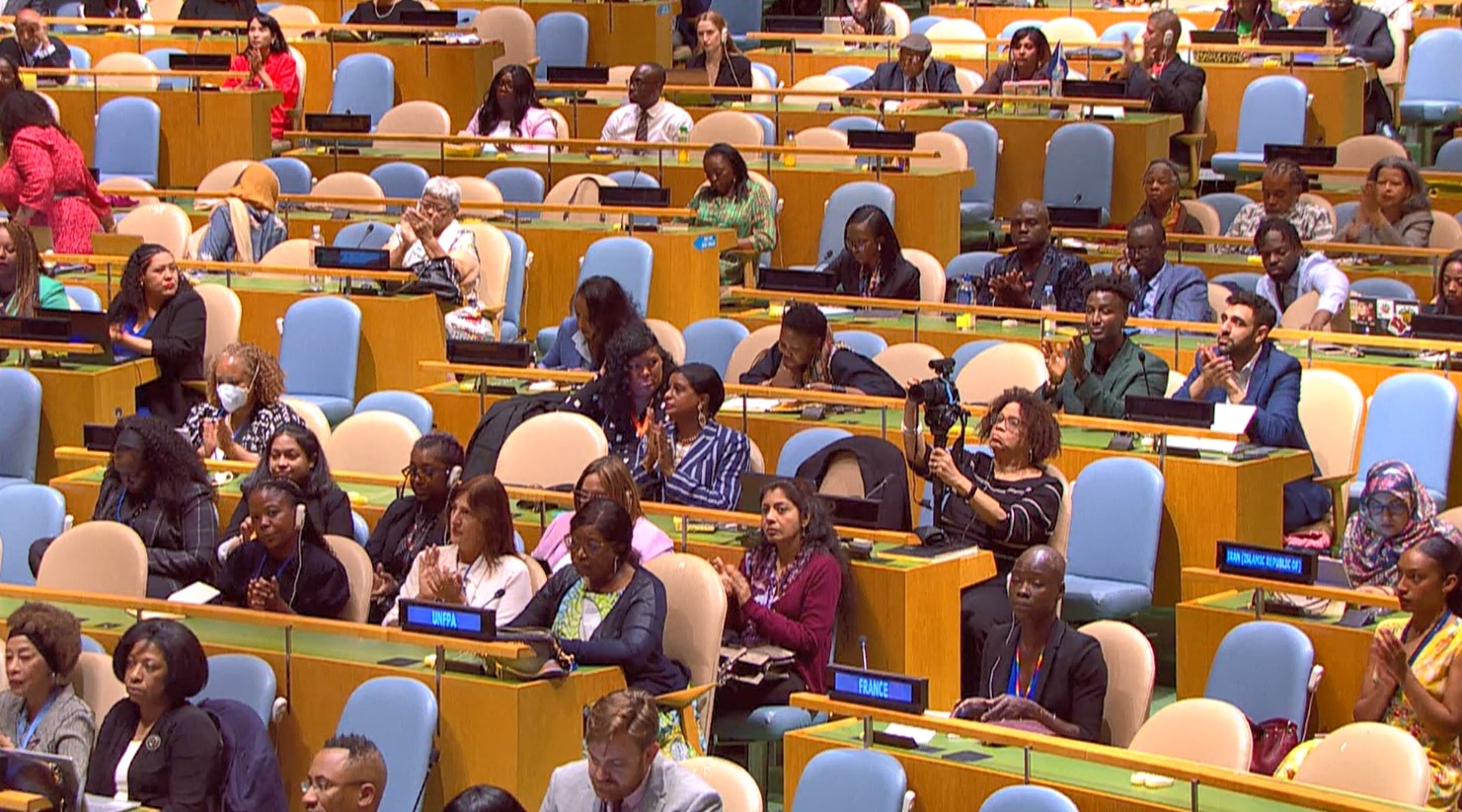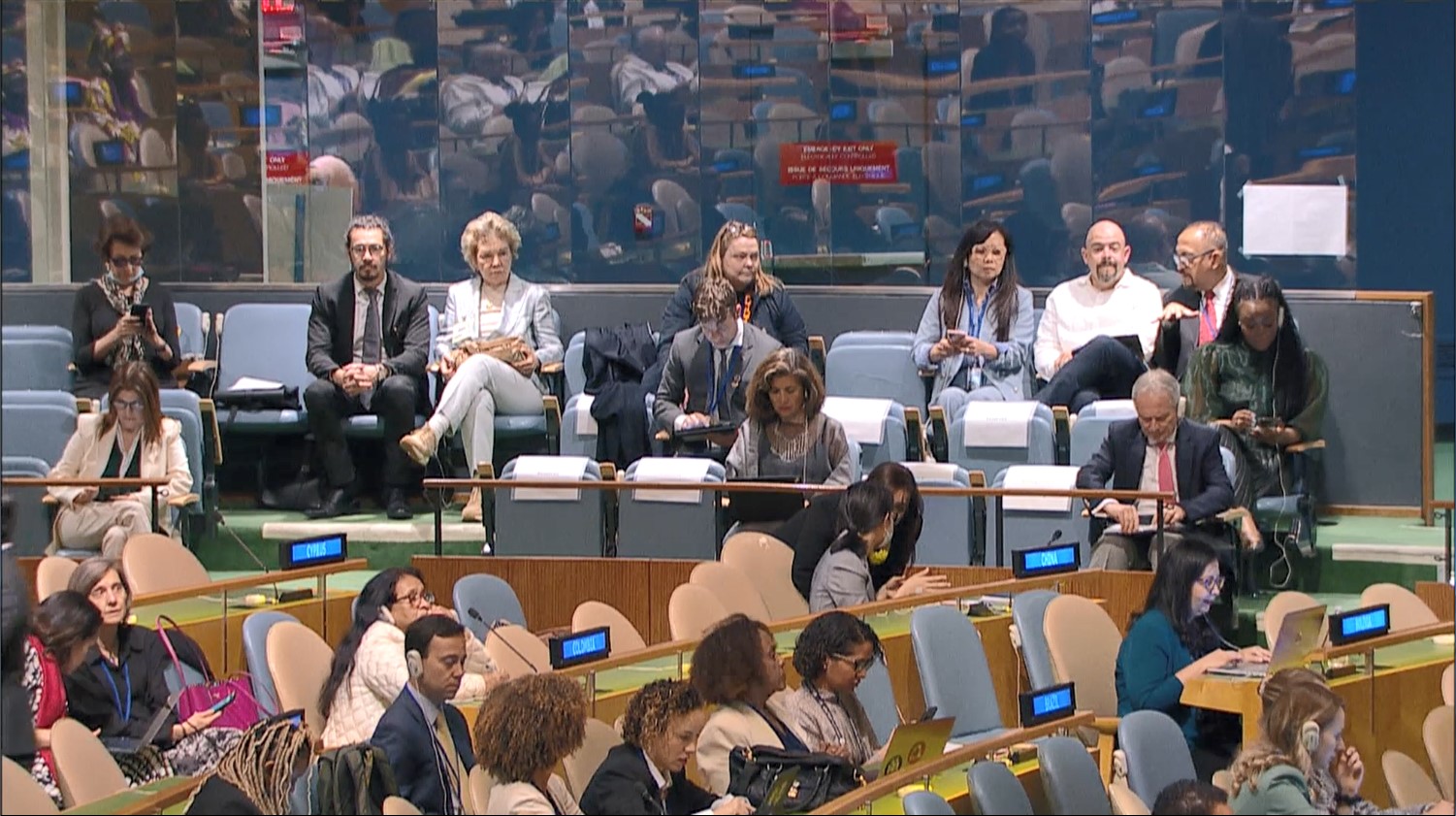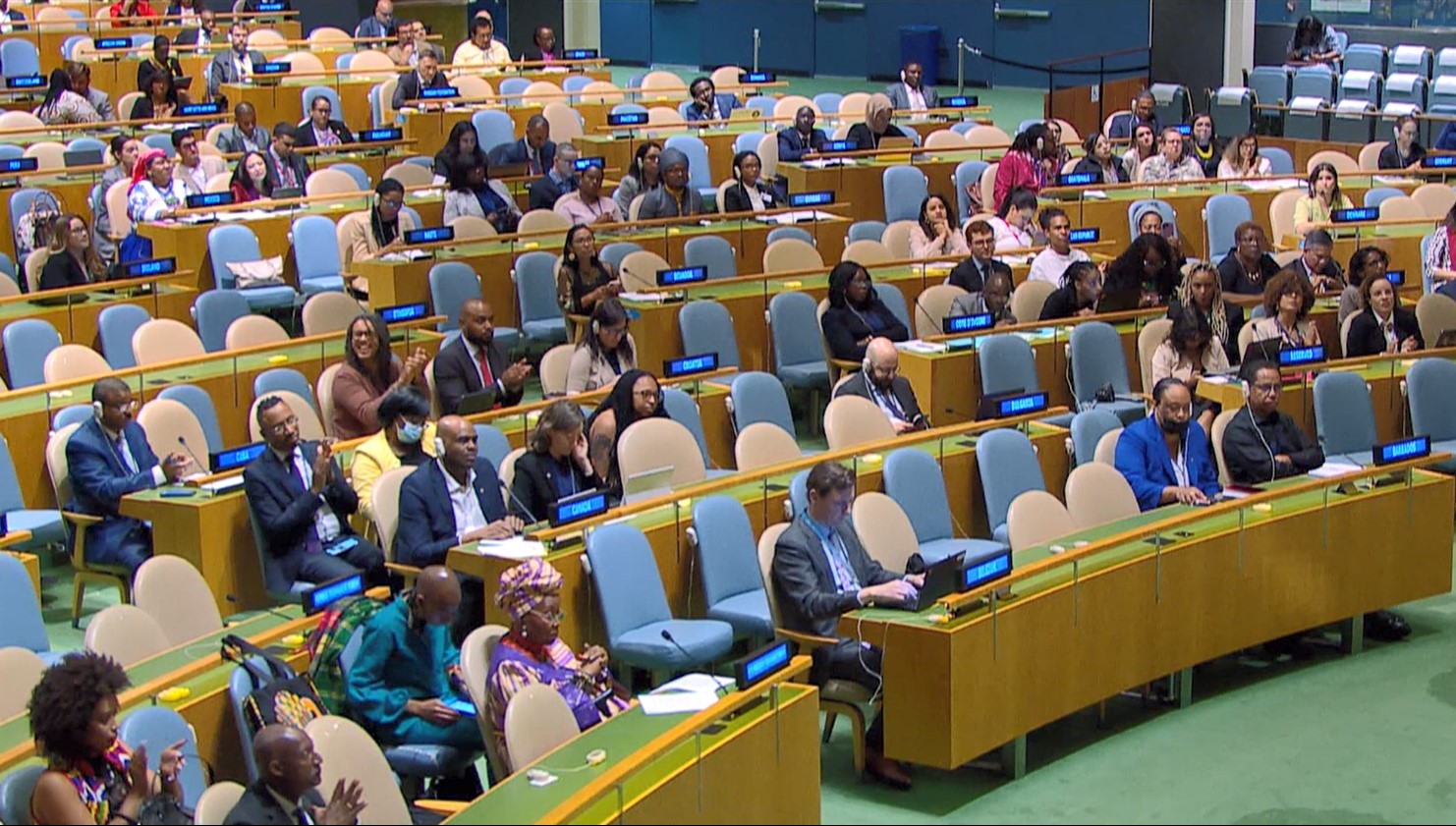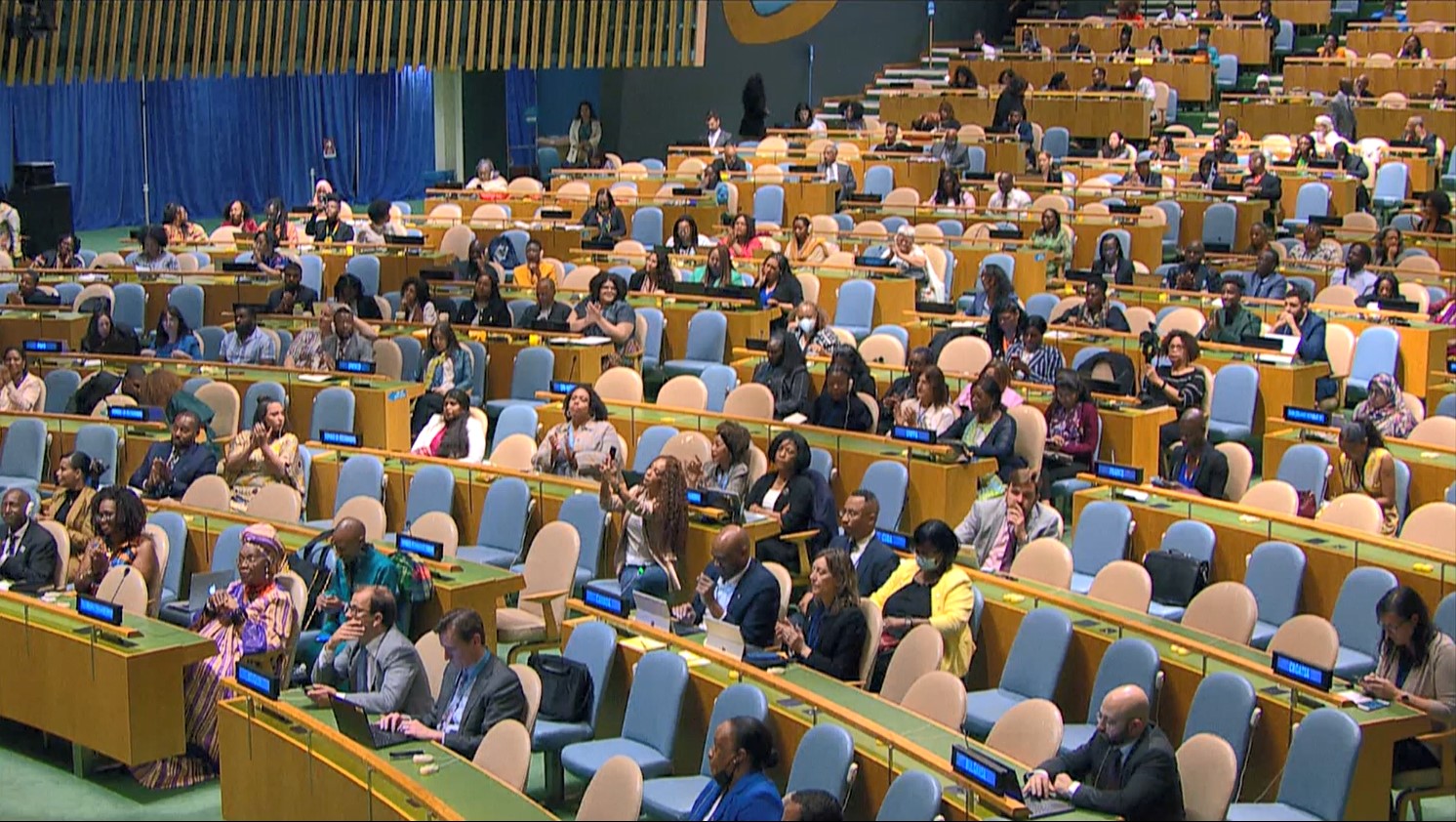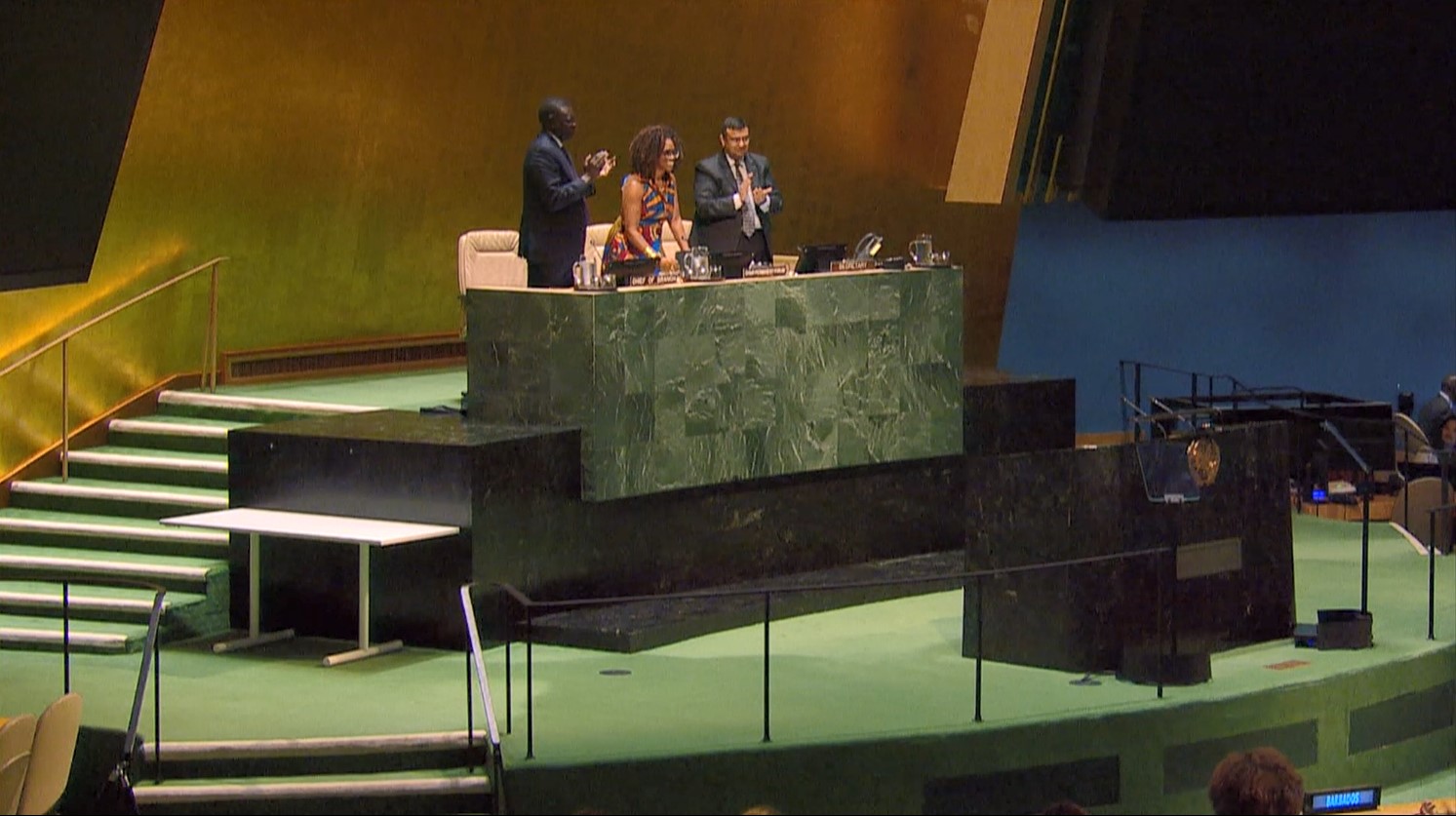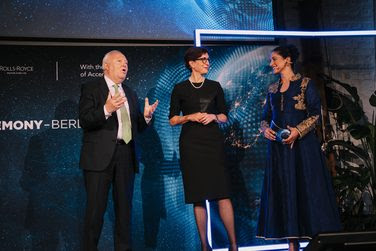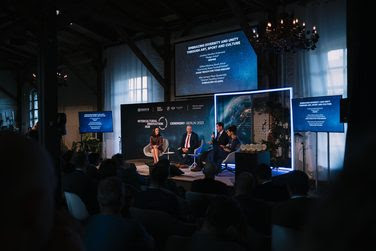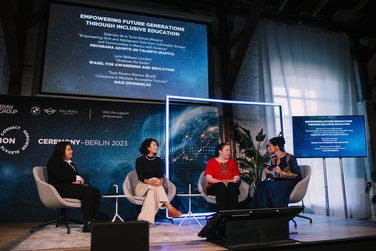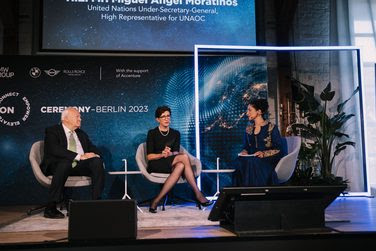Ukraine: Dam destruction ‘monumental humanitarian, economic and ecological catastrophe’: Guterres
- Details
- Category: World Hot News
- Published: Wednesday, 07 June 2023 11:58
- Written by Gentry
 © IAEA/Fredrik Dahl Water is used to cool processes at the Zaporizhzhya Nuclear Power Plant in Ukraine.
© IAEA/Fredrik Dahl Water is used to cool processes at the Zaporizhzhya Nuclear Power Plant in Ukraine.
Tens of thousands of civilians in Ukraine are in danger on the frontline, after the apparent destruction of a huge dam on Tuesday, which the UN chief described as a “monumental humanitarian, economic and environmental catastrophe” resulting directly from Russia’s invasion of the country.
Water from the reservoir of the Kakhovka dam is also used to cool the nearby Zaporizhzhya nuclear power plant (ZNPP), Europe's largest, which has been under constant threat since being occupied by Russian forces early in the conflict.
The UN Office in Ukraine tweeted that “thousands of people in Ukraine are in peril” following the major breach in the Soviet-era Kakhovka dam and hydroelectric plant, on the country’s largest river, the Dnipro, in the southeast, with video showing torrents of water cascading through.
'Devastating consequence'
UN Secretary-General António Guterres, told reporters in New York outside the Security Council that the UN had no access to independent information to verify how the catastrophe had occurred.
“But one thing is clear: this is another devastating consequence of the Russian invasion of Ukraine”, he said, whose effects are being seen in dozens of towns and cities along the Dnipro River.
At least 16,000 have already lost their homes he said, assuring that the UN and partners were rushing support to the affected areas, including drinking water, purification tablets, “and other critical assistance.”
He said the tragedy “was yet another example of the horrific price of war on people. The floodgates of suffering have been overflowing for more than a year, and that must stop”, along with all attacks on civilians and infrastructure.
“Above all, I appeal for a just peace, in line with the UN Charter, international law, and the resolutions of the General Assembly”, he concluded.
The Ukrainian and Russian governments blamed each other for launching an attack on the facility - according to news reports - which is under Russian control, on the southern and eastern side of the river, while Ukrainian forces control territory along the opposite bank.
Thousands of people have already been reportedly evacuated, with towns downstream inundated with water.
Misery compounded
Long-term, “many risk being left homeless and in desperate need, compounding the misery Ukrainians face amid Russia’s full-scale invasion”, said the UN Office.
In a tweet, the President of the UN General Assembly, Csaba Kőrösi, said he stood in solidarity with those suffering the effects of the disaster in the Kherson region, adding that "intentional attacks to cause long-term and severe damage to the natural environment, are war crimes."

The UN human rights office, OHCHR, said that civilians’ rights to housing, health and livelihoods, along with access to clean water and a health environment, were all at risk, calling for a full investigation into the disaster, and accountability.
Nuclear plant concerns
According to the UN’s nuclear watchdog, IAEA, the damage to the dam has already led to a “significant” reduction in the level of the reservoir that supplies the ZNPP.
IAEA chief Rafael Grossi warned that the “absence of cooling water in the essential cooling water systems for an extended period of time would cause fuel melt and inoperability of the plant’s emergency diesel generators”.
‘No immediate risk’
While there was no “immediate risk” to the plant’s safety, as the supply of cooling water from the reservoir “should last for a few days”, the agency’s monitors present at Zaporizhzhya, which is occupied by Russia but operated by Ukrainian civilians, continue to monitor closely the rate at which the reservoir level is falling.
Mr. Grossi also said that a “large cooling pond” next to the ZNPP could potentially provide an alternative source of water, which Ukrainian authorities confirmed later, according to news reports. But he insisted that it was “vital” that this cooling pond remains intact.
‘Grave and far-reaching consequences for thousands’: UN relief chief to Security Council
“The sheer magnitude of the catastrophe” in Kherson, will only be evident in the coming days, said UN relief chief Martin Griffiths, briefing the Security Council in emergency session on Tuesday afternoon in New York.
He said it was already clear that it would have “grave and far-reaching consequences for thousands of people in southern Ukraine, on both sides of the frontline, through the loss of homes, food, safe water and livelihoods.”
The resevoir is a lifeline he said, for the whole region. Ukrainian authorities are reporting that 40 settlements have already been flooded or partially-flooded, with that figure expected to rise.
The UN is still unable to gain access to Russian controlled regions, he told ambassadors, but already mobilizing aid fast to those civilians that it can reach.
He said the UN was complementing the efforts of the Ukrainian Government, and was sending power generators, sanitation and mobile drinking water supplies, and multidisciplinary mobile teams were also being deployed to train and bus stations to support evacuation.
Cities in the west, are preparing to receive evacuees. Farming and fisheries activity will be damaged across the whole region, including Russian-occupied Crimea.
Plight of civilians will only worsen
He said “today’s news means the plight of the people of Ukraine is set to get even worse...Immediate humanitarian needs are expected to grow as flood waters move over the coming days”.
He said the dam was “a key source” for agriculture and irrigation, “a massive blow to a food production sector...already significantly damaged.”
He also voiced concern over the fast moving water shifting landmines and other deadly ordinance, to areas already declared safe.



 UN photo /Loey Felipe Wide view of the Security Council Chamber. UN Photo/Loey Felipe (file)
UN photo /Loey Felipe Wide view of the Security Council Chamber. UN Photo/Loey Felipe (file)